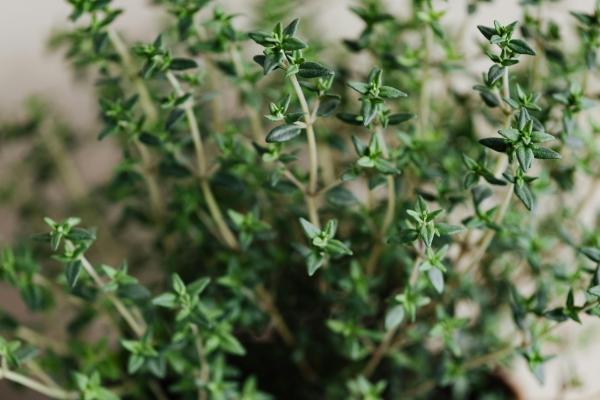Introducing “Seeds of Culture: Middle East Culinary Heritage”

The Middle East Studies Center is launching a new food sovereignty project to encourage community building and cultural inclusivity by fostering local and sustainable food systems. Seeds of Middle Eastern Culture is a food sovereignty project focused on Middle Eastern culinary practices and raising awareness about the plants that hold unique meaning to our region of study. Food sovereignty refers to the right of individuals and communities to access nutritious and culturally suitable food, and to shape their own food and agricultural systems. This concept emphasizes that local communities should play a central role in food production and policy-making, which helps to address food insecurity and ensures the availability of culturally significant produce and ingredients.
Through this initiative, we will highlight the significance of culturally relevant plants, promote learning about systems of the Middle East, and learn about the related plants and foodways in ways that can be experienced in Columbus. Guiding principles of this project related to food sovereignty:
- encouraging collective action of communities working towards food security through cultural knowledge of plants and culinary practices
- engaging community members in sustainable local food systems, cultural heritage, and cultural diversity
- prioritizing local farmers and food producers, emphasizing ingredients and cultural practices of the Middle East
These priorities make it apparent that transforming current food systems requires a cultural shift. At the same time, preserving traditional knowledge requires younger generations to learn about their heritage and to revere older generations. That is why the "Seeds of Culture" project focuses on young people. The purpose of this project is to inspire young people to source their food locally, appreciate the cultural value of plants, and seek ways to contribute to their local food systems.
As of the 2022 Census of Agriculture, the average age of a farmer in the U.S. is 58 years. While our project does not claim to reverse this trend alone, it aims to inspire young people to engage with food sovereignty through hands-on experiences that illustrate how people play critical roles in food systems at a local scale. Our approach uses the culinary practices of MENA communities as an entry point for engagement, offering a means to both connect young people to farming activities and to increase their intercultural awareness. This often also means young people learn knowledge relevant to their cultural backgrounds.
This project is a collaboration between the Middle East Studies Center and the Vincent Walters Urban Farm in the Bronzeville Neighborhood of Columbus, Ohio. Melinda McClimans, Assistant Director of Ohio State University’s Middle East Studies Center and this project’s educational lead, leverages over two decades of international education experience in interdisciplinary program building, community engagement and cultural exchange. Vincent Walters Owner/Operator Jodi Spencer is a horticulturalist, business woman and experienced educator who will contribute her experience to the planting and growing aspects of the educational activities. Here’s what the project entails, how it connects to Middle Eastern food traditions, and how you can get involved.
What is Food Sovereignty
Food sovereignty is defined as the right for people to have “healthy and culturally appropriate food” and to “define their own food and agriculture systems”[1]. Food sovereignty foregrounds the idea that people and their communities should be at the center of food production and agricultural policies, which not only combats food insecurity, but also increases access to culturally relevant fruits, vegetables, and other culinary inputs.
With the growth of industrial agriculture around the world, many food systems have lost their connection to the cultural and social contexts in which they developed. Additionally, with a rising percentage of the global population facing moderate or severe food insecurity resulting from high prices of food, it is essential that communities begin to regain control over their own culturally relevant and sustainable food systems[2][3].
Food Sovereignty in The Middle East and Columbus
Seeds of Middle Eastern Culture starts by educating about certain plants and promotes deeper involvement in food systems and the cultural relevance of plants locally in Columbus. The Middle East, frequently touted as the birthplace of agriculture and cultivation, is the location of the historic fertile crescent, a region that stretched from Turkey to Iran, through countries like Syria, Lebanon, Jordan, Israel, Palestine, and Iraq. The Middle East has also been known for its long history of pastoralism, as referenced in various religious texts from the region[5]. Across the region, diverse landscapes and climates have shaped distinctive agricultural practices, from wheat and barley cultivation in the Tigris-Euphrates Basin to date palm farming in the arid Arabian Peninsula, and olive and grape production in the Levant. The food industry continues to be of central importance to the region, with over half of the Middle Eastern population engaged in farming, herding, or other agricultural work[3].
Despite its rich history, food production in the Middle East faces major challenges. Many countries in the region depend heavily on food imports, making their food systems extremely susceptible to price fluctuations or supply chain disruptions in global food markets. On average, 60% of food in the Middle East is imported each year from abroad[4]. This figure reaches as high as 90% in countries with limited arable land like Qatar and the United Arab Emirates[4]. As a result, several organizations and governments in many Middle Eastern countries have begun to advocate for stronger food self sufficiency, calling for more investment in agricultural initiatives, people-oriented food systems, and new policies for sustainable agriculture and food production — all with the intention of promoting food security, increasing access to culturally relevant crops, and maintaining culinary heritage for everyone across the region[3]. In cases of war in the Middle East, food security helps communities resist existential threats [6].
The Middle East Studies Center views food sovereignty globally and locally, looking at our region, its numerous and diverse cultural communities, and their diasporas around the world. The Seeds of Middle Eastern Cultures project is primarily an outreach effort in our local community that will teach about the Middle East as we raise awareness about the importance of food systems and the role of culture in food systems. Our guiding principles of community engagement, collective action, and cultural relevancy may look different in practice, depending on which community we are targeting. In the Middle East, food sovereignty projects might include olive tree-planting projects, farmland revival, and infrastructure rehabilitation (see projects of APN). In Columbus, food sovereignty may seek to align with the cultural heritage of New Americans, the cultural identity of neighborhoods such as Bronzeville, or to raise awareness of the importance of cultural diversity in food systems.
The Project
Since the project’s inception-rooted in connections made at the 2022 “Community-Centered Approaches for Food Systems Transformation Workshop”-our team has continued to focus on Goal B-10 of Columbus’s Food System Plan, emphasizing engagement with cultural communities and addressing food system inequities. The grant will enable us to capture stories experiences about plants and food, and outcomes of our work more comprehensively, ensuring that the knowledge of Middle Eastern and African food system stakeholders are preserved and their voices amplified.
In addition to ongoing community activities, including hands-on learning activities and educational materials that we offer at farmers' markets and cultural festivals, the grant will help us refine our methods to deepen impact and make outreach more effective. We remain committed to fostering university-community partnerships and supporting teachers through professional development, building on last summer’s successful session on Food Sovereignty in the Middle East led by OSU Fellow Dr. Bürge Abiral.
How You Can Get Involved
There are many ways you can get involved. We're looking for opportunities to collaborate with researchers and teachers, volunteers to join us at farmers' markets and cultural festivals, and learners of any age. Our Culturally Relevant Crops page provides in-depth information on Middle Eastern crops, their origins, growing conditions, their religious, historical, and economic importance, as well as their culinary uses and delicious recipes. If you browse Food Systems by Location, you will be able to dive deeper into the cultural and culinary diversity of food systems across the region. Finally, learn about the Middle East through topics related to food and food sovereignty in our Agri-Cultural Community Builders materials.
Visit us at local farmers markets (starting on March 29th):
We will bring our project to local farmers markets where visitors can learn about the Middle East and its rich culinary history, receive pots and seeds to grow their own culturally significant crops, and learn more about food sovereignty. Sign up for email announcements.
Volunteer with us:
We are looking for volunteers to help transport materials to the market, hand out plants and educational materials, and run the booth. We will offer an orientation to all volunteers to ensure they feel prepared to engage with the community. If you want to give us a hand, check out these upcoming events and either stop by our booth or sign up to help set up/tear down, hand out pots and seeds, serve as an educator, or a combination of all!
We invite you to get involved by learning more and/or becoming a volunteer in our activities. If you have any questions about this or other programs we offer, please do not hesitate to get in contact with us with any questions at mesc.osu.edu/contact Sign up for announcements, to join us for volunteer opportunities, or to follow along as we add new material and learning opportunities related to food sovereignty and the culinary heritage of the Middle Eastern region.
References:
[1] Journalism, C. U. G. S. of, University of California, S. C.,
University, W. N. M., & Tennessee, U. of. (n.d.). Food Sovereignty: Definition, Principles, and Importance. Treehugger. https://www.treehugger.com/food-sovereignty-definition-5181592
[2] World Bank. (2024). Food Security Update. World Bank; World Bank. https://www.worldbank.org/en/topic/agriculture/brief/food-security-update
[3] ANFS. (2021). Arab Network for Food Sovereignty (ANFS) | The Arab Group for the Protection of Nature. The Arab Group for the Protection of Nature. https://www.apnature.org/en/arab-network-food-sovereignty-anfs
[4] Babar, Z., & Mehran Kamrava. (2014, September 28). Food Security and Food Sovereignty in the Middle East. Academia.edu. https://www.academia.edu/8537570/Food_Security_and_Food_Sovereignty_in_the_Middle_East
[5] Work, T. of. (2023). The Pastoral Lifestyle of Abraham and his Family (Genesis 12:4-7) | Theology of Work. Theology of Work. https://www.theologyofwork.org/old-testament/genesis-12-50-and-work/abraham-genesis-121-2511/the-pastoral-lifestyle-of-the-abraham-and-his-family-genesis-124-7
[6] FAO. (2025, January 28). Gaza: Immediate action must combine emergency relief with the restoration of local food production. Newsroom. https://www.fao.org/newsroom/detail/FAO-gaza-emergency-relief-food-production/en
Additional resources on food sovereignty and the Middle East:
Food Security and Food Sovereignty In the Middle East - Center for International and Regional Studies. (2024, April 23). Center for International and Regional Studies. https://cirs.qatar.georgetown.edu/research/research-initiatives/food-security-and-food-sovereignty-middle-east/
Food Sovereignty Workshop Brief. (2022). MESC.osu.edu. https://mesc.osu.edu/news/food-sovereignty-workshop-brief
Food Sovereignty Workshop: Community-Centered Approaches for Food Systems Transformation. (2022). MESC.osu.edu. https://mesc.osu.edu/events/food-sov-workshop
Nermeen Dalgamoni. (2018, October 28). Food Sovereignty in the Arab World. https://www.researchgate.net/publication/329001572_Food_Sovereignty_in_the_Arab_World
Shutek, J. (2020). Toward a Model of Food Sovereignty in Egypt and Tunisia. Journal of Agriculture, Food Systems, and Community Development, 343–346. https://doi.org/10.5304/jafscd.2020.094.039
US Food Sovereignty Alliance. (n.d.). Food Sovereignty | USFSA. US Food Sovereignty Alliance. https://usfoodsovereigntyalliance.org/what-is-food-sovereignty/

